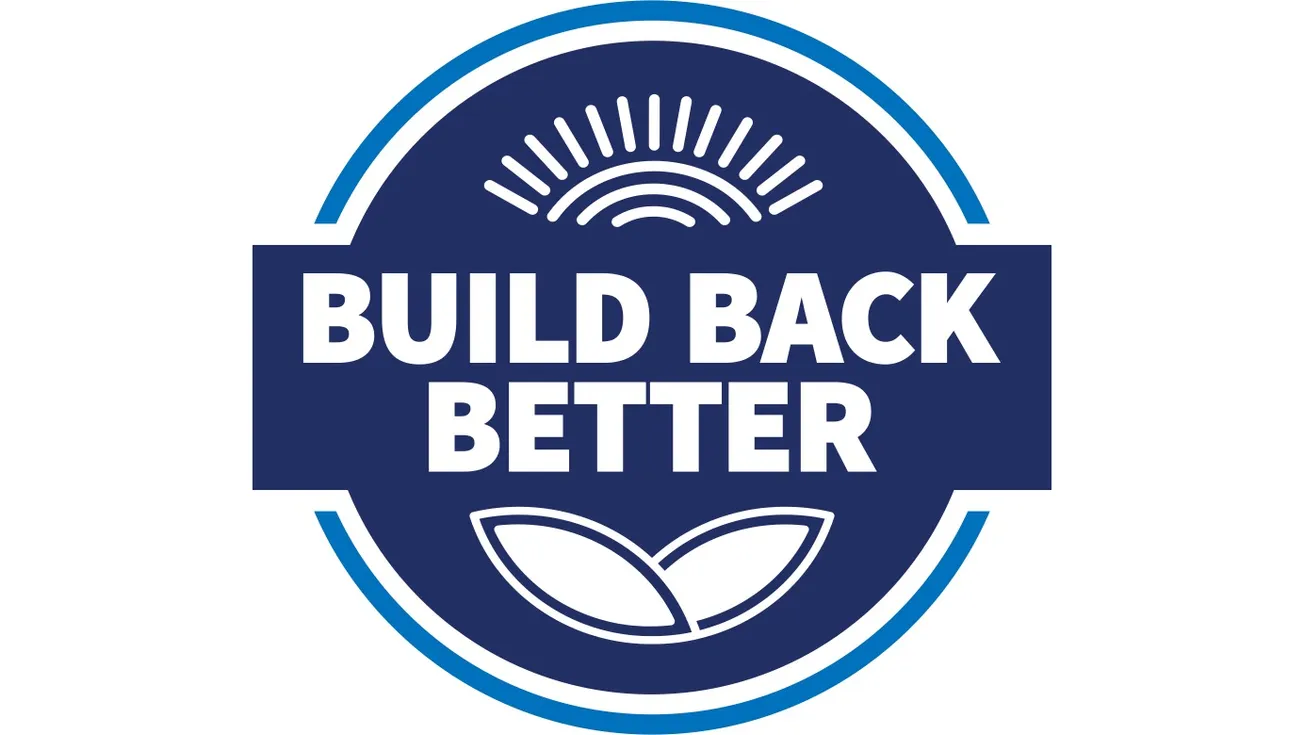Two weekends ago, Senator Joe Manchin dropped a major bomb on the American people and the Biden agenda, announcing on Fox News Sunday that he would be a “no” vote on President Biden’s Build Back Better framework. That announcement not only blindsided Democratic lawmakers, but once again delayed what would have been the largest investment in families, jobs, and the social safety net since President Franklin D. Roosevelt’s New Deal. While negotiations over the bill are expected to continue in the new year, it’s no understatement to say that the future of the Biden agenda hangs in the balance by Senator Joe Manchin.
Data for Progress spent most of 2021 tracking the popularity of Build Back Better’s various iterations and provisions, and have found that the Build Back Better Act continues to be a wildly popular piece of legislation. As Democrats look ahead to 2022 negotiations over the bill, it’s worth charting voters’ stances on the bill and its provisions over the course of its debate.
Voters have consistently supported build back better, even despite Republican opposition
We partnered with Invest in America to track Build Back Better’s popularity over the course of November — and found that support never wavered below 55 percent. Voters across the political spectrum have supported Build Back Better over its various iterations.
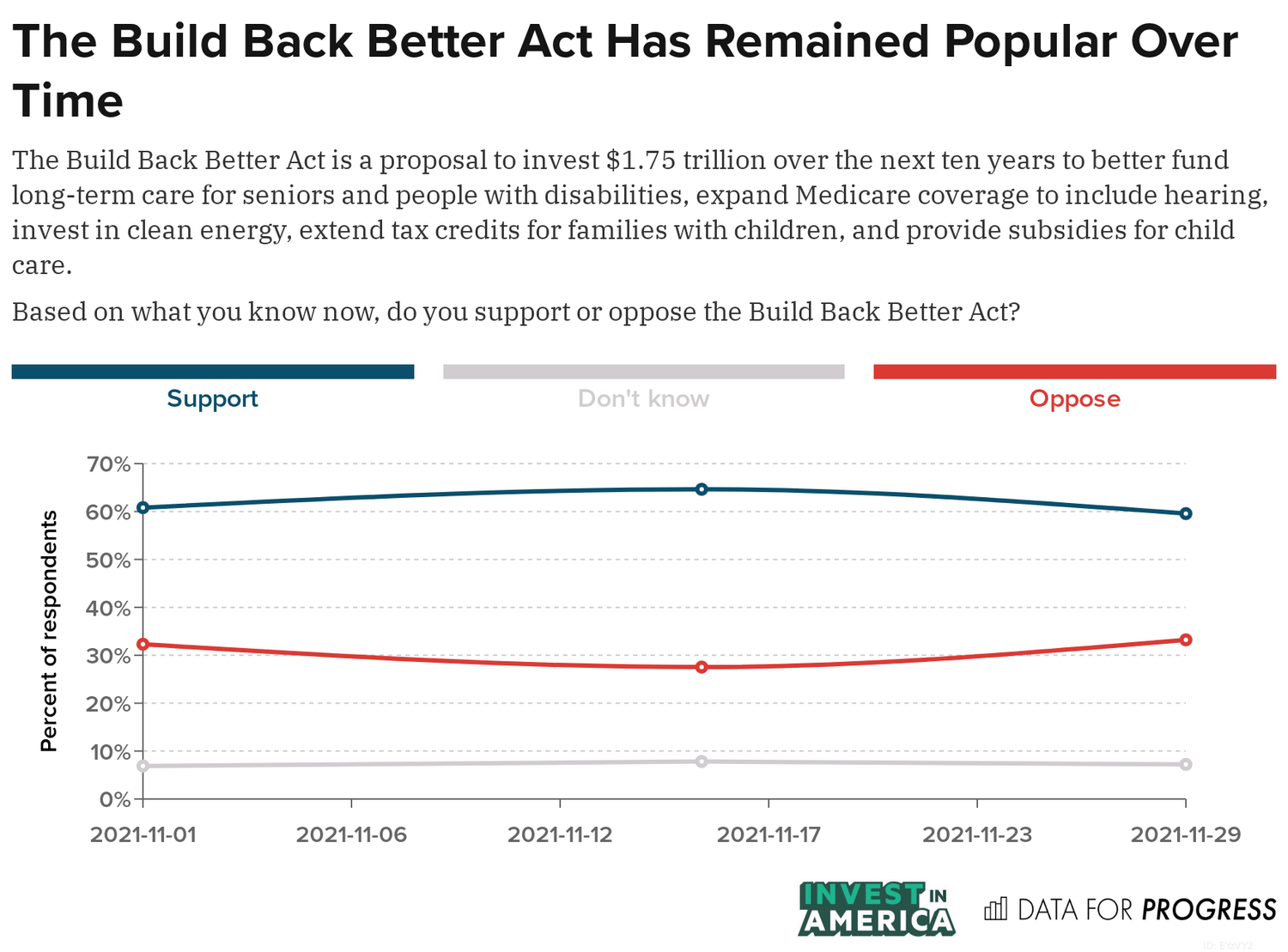
Even despite an onslaught of negative messaging from Republicans, recent polling finds that Build Back Better continues to hold majority support from voters: 61 percent support from likely voters, including a majority of Independents and a third of Republicans.
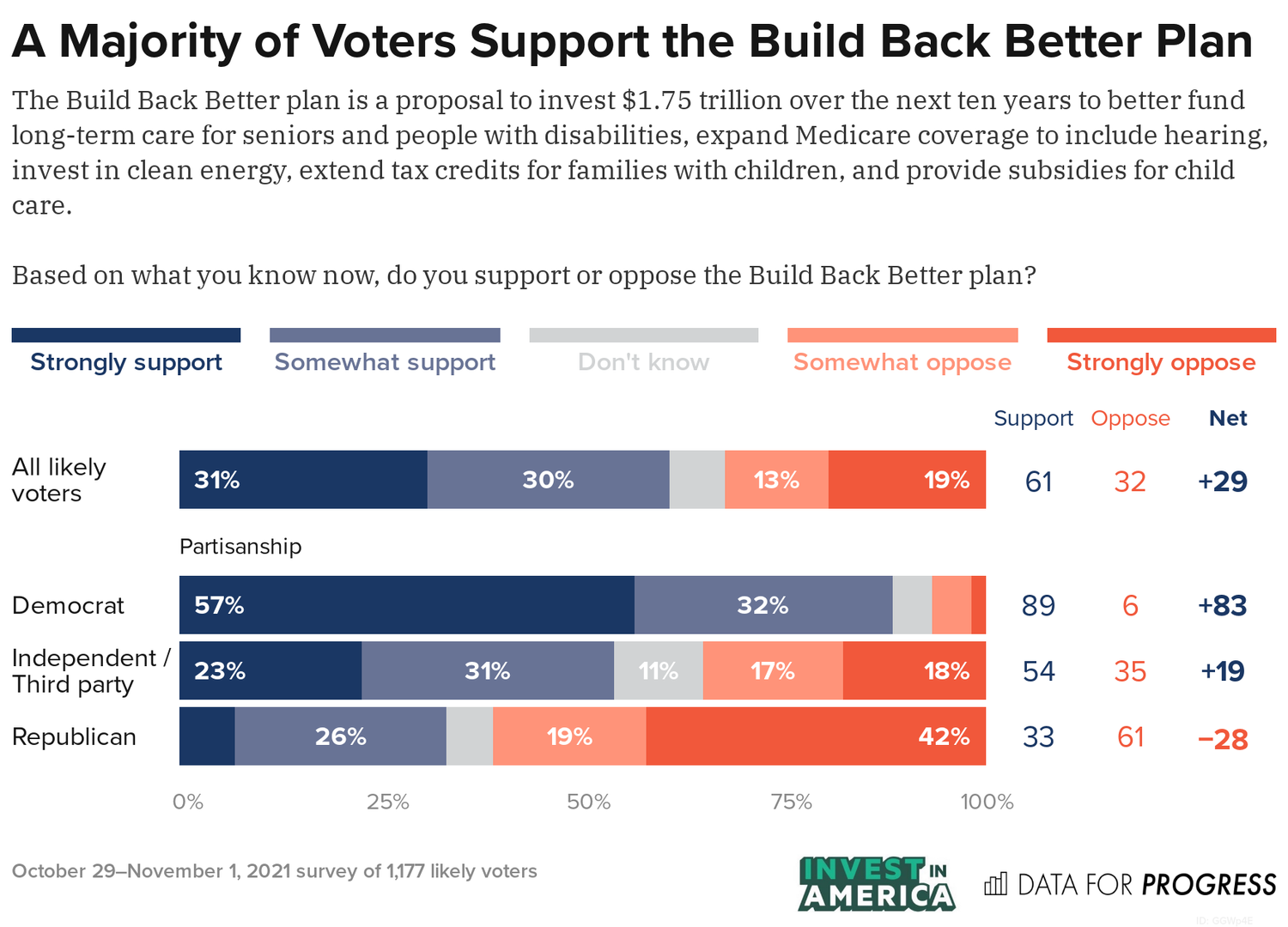
Voters support every major provision of Build Back Better
DFP polled the major provisions of the Build Back Better Act repeatedly throughout the year and found repeatedly that the major provisions continued to receive support from voters. Investments in long-term care consistently remained the most popular provision in Build Back Better — carrying a net support margin of around or at least +60 points in our polling with Invest in America — followed closely by the expansion of Medicare to include hearing. We also found strong voter support for Build Back Better’s housing investments, clean energy investments, child care investments, and universal pre-K.
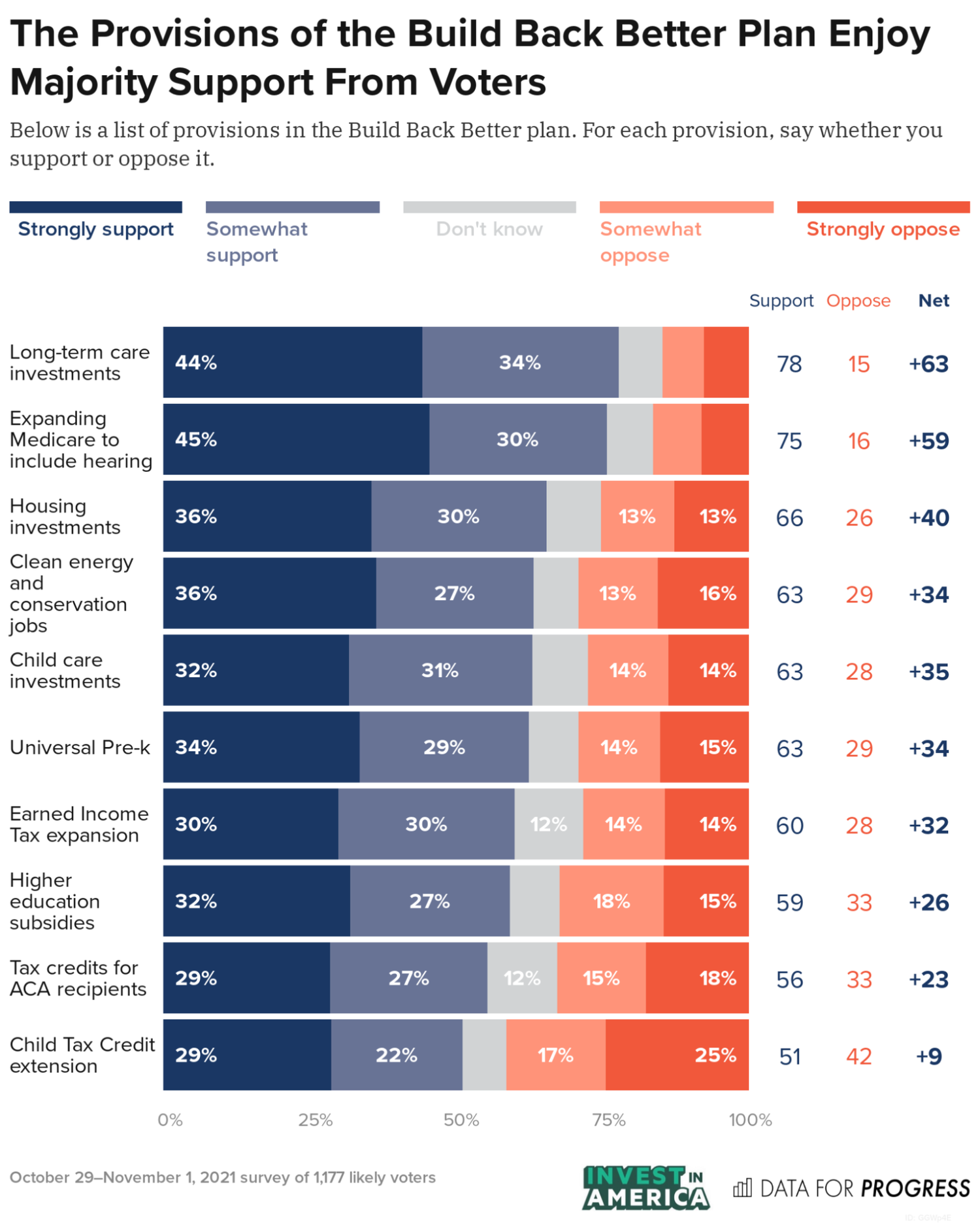
In particular, we found that a Build Back Better message emphasizing the increase of at-home care investments boosted support of the bill overall by +7 points. Gen-Z and Millennial voters both increased their support for Build Back Better by +11 points, while likely voters ages 65+ — the demographic most likely to vote — increased their support for the bill by +6 points.
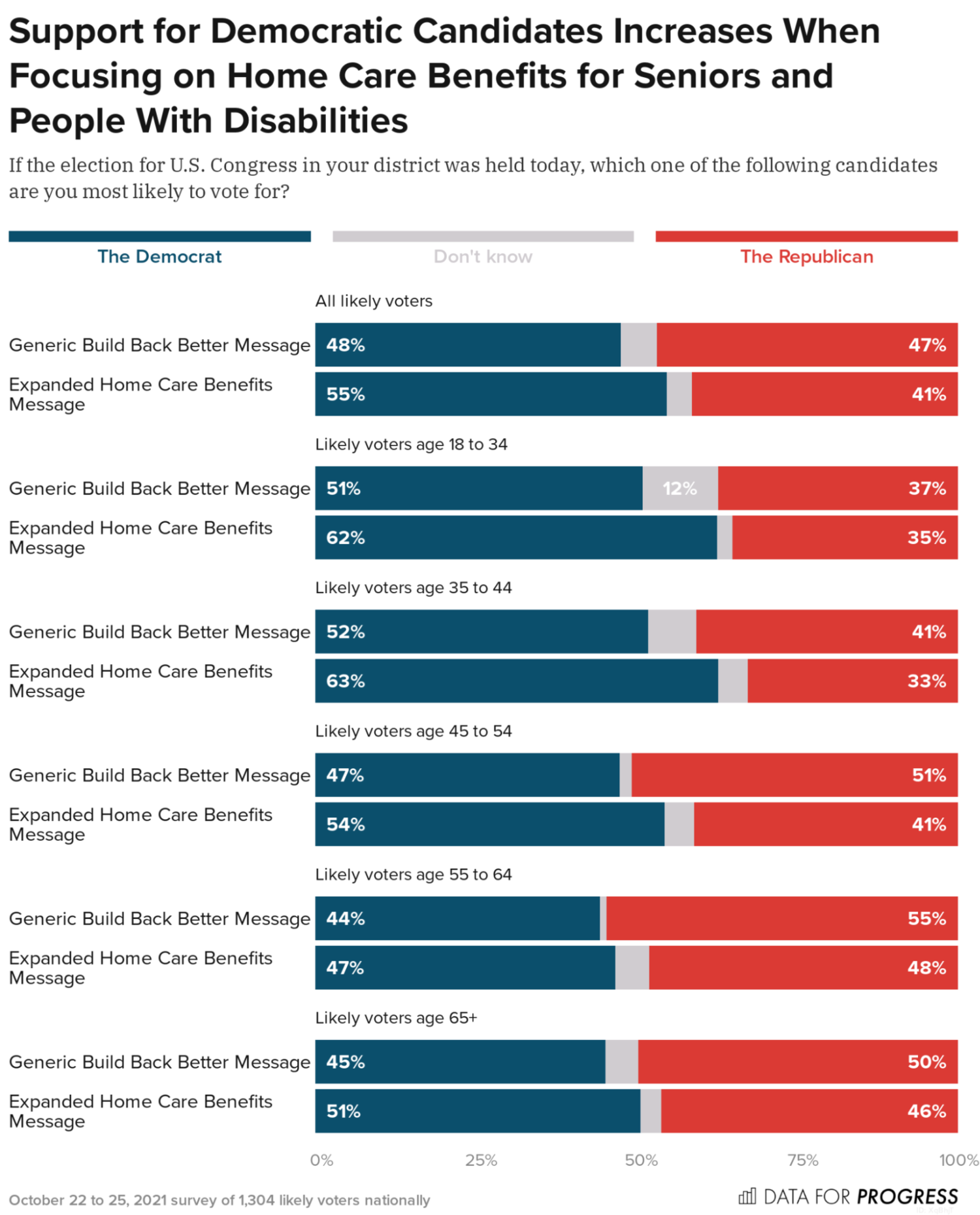
Meanwhile, our latest polling on the Child Tax Credit, which Manchin has repeatedly vowed to “zero out,” carries a comfortable margin of support among Democrats and Independents; 59 percent of voters support it, which actually represents an increase from previous polling on the CTC.
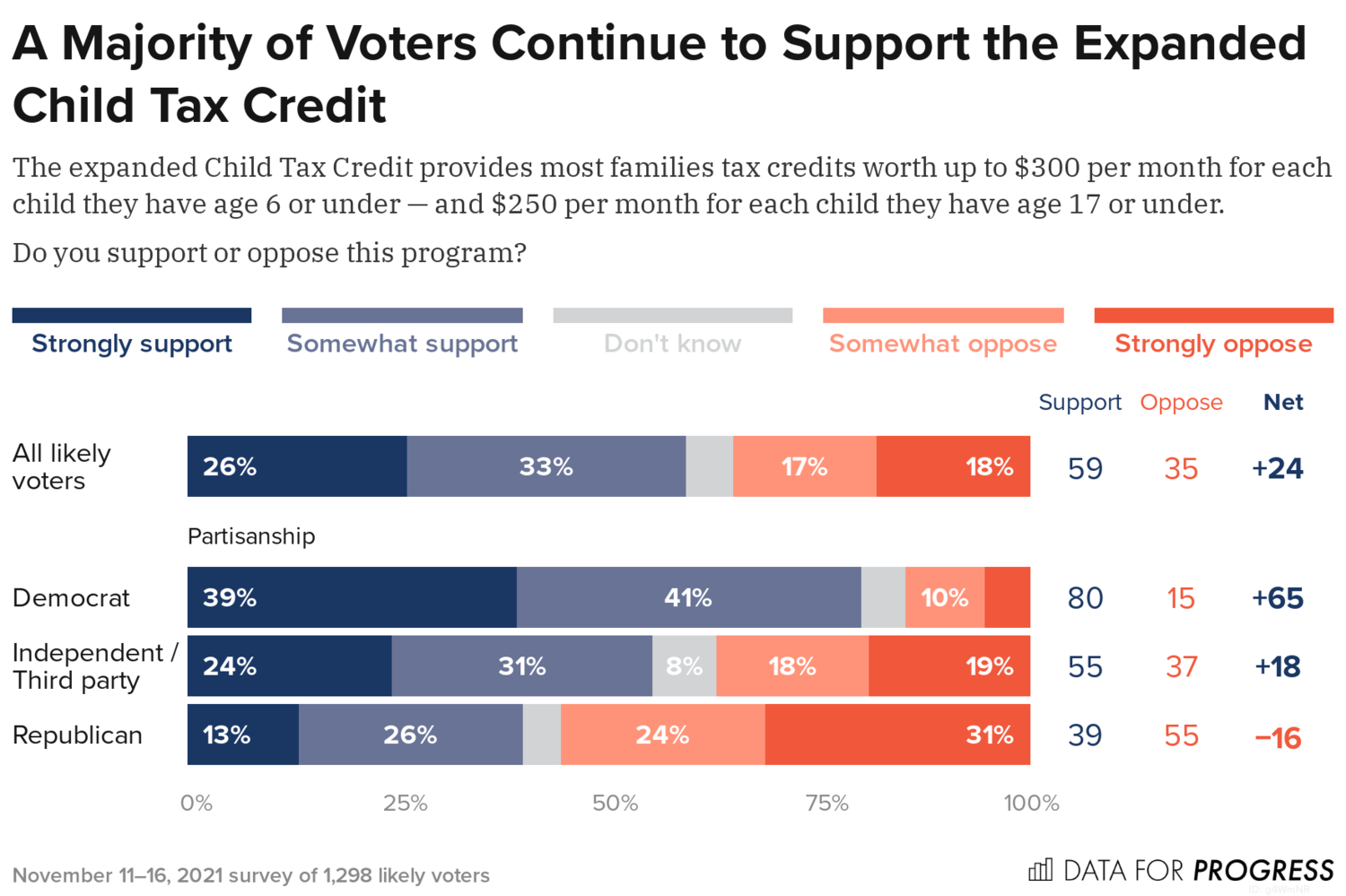
Voters support how Build Back Better is paid for
While moderate Democrats hemmed and hawed over the price tag of the plan — simultaneously arguing that the bill was too expensive while refusing to consider the plan’s major pay-fors — Data for Progress consistently found that voters supported the pay-fors proposed by Democrats.
We find likely voters across the political spectrum approved of increasing taxes on the rich and closing the tax loopholes that rich people and corporations exploit; in fact, one of our polls with Invest in America found that these pay-for provisions actually made the bill slightly more popular, even when presented with messaging opposing them.
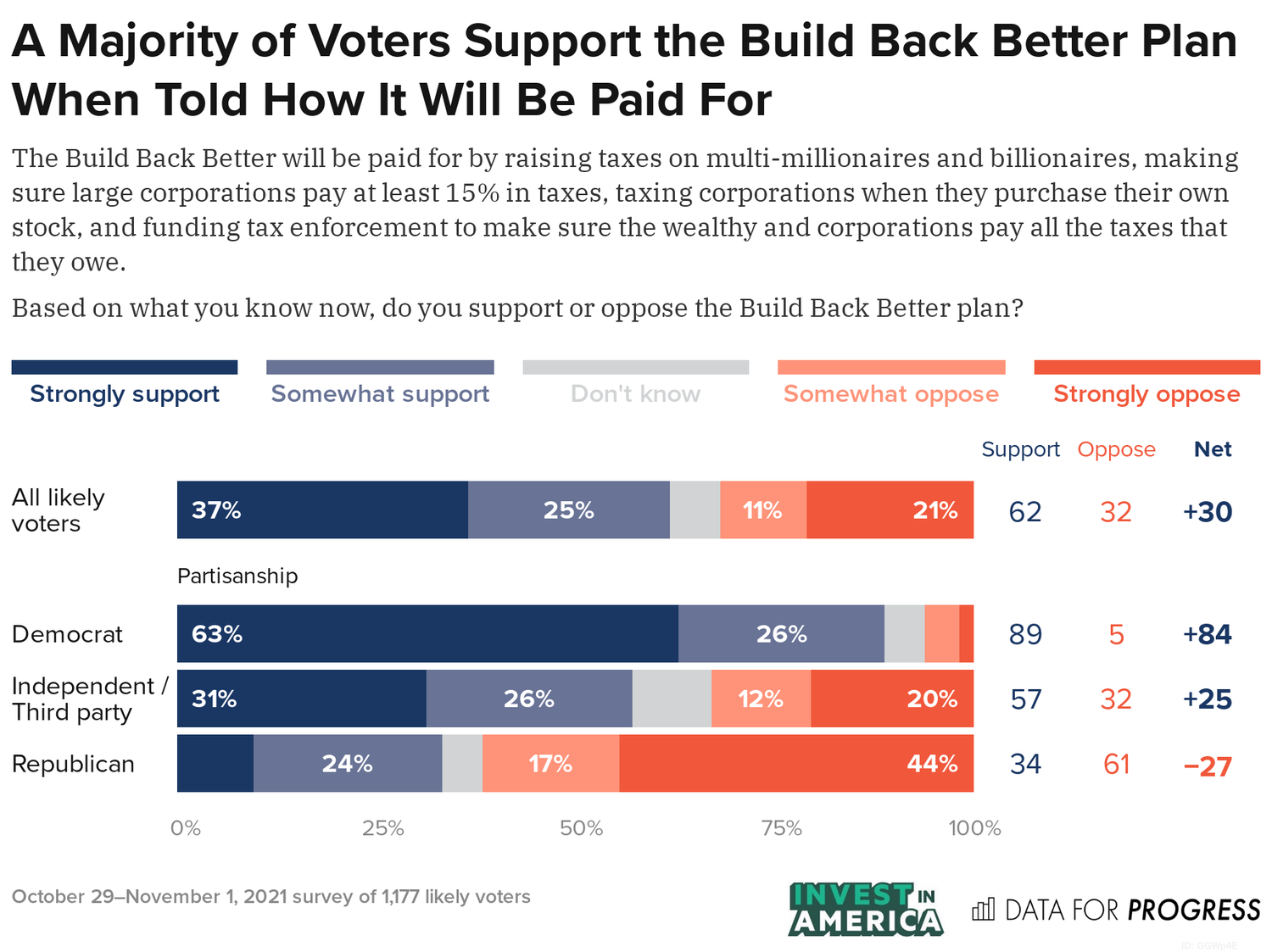
Voters in key swing districts and battleground states support build back better — including in West Virginia
This support for Build Back Better, its key provisions, and its pay-fors isn’t limited to solidly blue states. Our polling in August found overwhelming voter support in key states for Build Back Better, including Georgia (+53 net support), North Carolina (+50), Pennsylvania (+46), Michigan (+46), West Virginia (+43), Wisconsin (+39), and Arizona (+37).
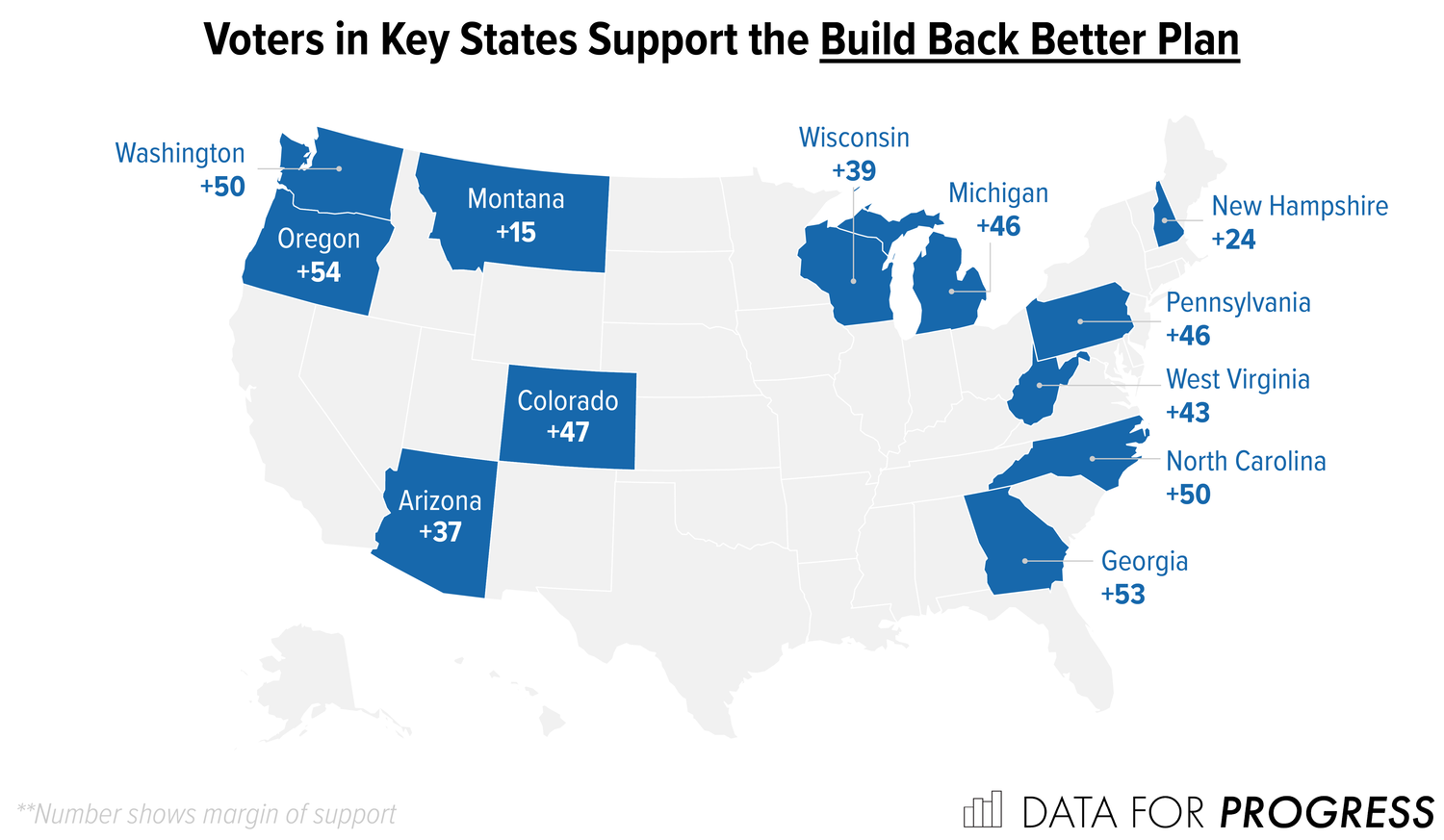
In West Virginia specifically, all provisions of the bill — including clean energy investments — are supported by at least 60 percent of voters. This includes investments in long-term care (+78 net support), expanding Medicare coverage (+70), child care investments (+53), paid leave (+46), universal pre-K (+42), and clean energy investments (+28).
Key Takeaways
Despite cuts and constant attacks from Republicans, Build Back Better remains popular with voters across the political spectrum, particularly among Democrats and Independents — the coalition that elected President Bident to enact the Build Back Better Agenda. For the sake of Democrats’ electoral chances in 2022 and 2024, not to mention the generational need for investment in American industry and families, it is imperative that this bill get passed.
--30--
Written by Sean McElwee, executive director of Data for Progress. Cross-posted from Data for Progress.


